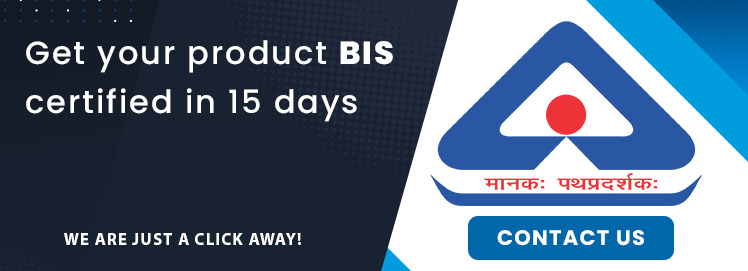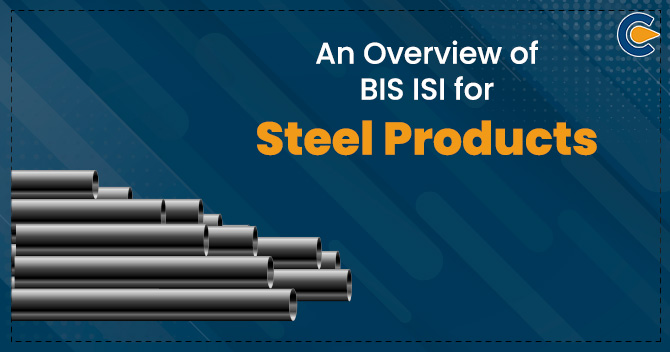The Indian economy is the world’s fastest-growing, with characteristics that allow it to compete with the world’s largest multinational economies. Due to globalisation, more trade is now possible in sectors such as manufacturing, services, international sales of goods, and import-export. In this blog, we will discuss BIS Certification for Medical Devices in India.
The Indian healthcare sector has grown to become one of the largest in terms of revenue and employment. The healthcare sector includes hospitals, medical devices, clinical trials, outsourcing, telemedicine, medical tourism, health insurance, etc.
In India, the healthcare delivery system is divided into two key components: public and private. The first is the public healthcare system, which concentrates on offering primary healthcare centres (PHCs) in rural areas while including limited secondary and tertiary care facilities in major cities. The second is that the private sector supplies the bulk of secondary, tertiary, and quaternary care facilities, with a concentration in metros, tier-I and tier-II cities.
India manufactures a wide range of medical devices, from consumables to implantable medical devices. The majority of medical devices produced in India are implantable items like cardiac stents, drug-eluting stents, intraocular lenses, and orthopaedic implants as well as disposable items like catheters, perfusion sets, extension lines, cannulas, feeding tubes, needles, and syringes. The medical device industry demands significant investment in cash as well as ongoing training for healthcare professionals to keep up with emerging innovations.According to the Economic Survey of 2022, India’s public healthcare spending in 2021-22 was 2.1% of GDP, up from 1.8% in 2020-21 and 1.3% in 2019-20.
The status of a medical device was enlarged beyond the 23 previously notified medical devices on April 1, 2020, requiring that all medical devices be registered under The Drugs and Cosmetics Act of 1940[1]. Beginning October 1, 2022, all Class A and B medical devices must be imported with an Import License. All remaining Class C and D devices that have yet to be notified will require Import Licenses by October 1, 2023.
Let’s take a closer look at the parameters in order to comprehend all of these processes.
Importance of BIS and medical devices in our daily lives
Medical devices are regarded as a basic part of health systems; the advantages they can offer keep growing since they’re necessary for the safe & effective prevention, diagnosis, treatment & rehabilitation of illnesses and diseases. The stages involved in Medical Device manufacturing, regulation, planning, assessment, acquisition, and management are complex but necessary to ensure their quality, safety, and compatibility with the environments in which they are used.
While medical device producers have mostly concentrated on enhancing the standard of care and life expectancy, they need also to raise the affordability of equipment to have a significant influence on a broad range of people. This is where BIS comes in. The acronym BIS denotes Bureau of Indian Standards. The Bureau of Indian Standards (BIS) was established on November 26, 1986, by an act of parliament.
The medical device industry is anticipated to expand in the future due to a variety of factors, including a changing regulatory and economic climate. To ensure the highest levels of quality are met, India has to tighten its regulatory framework and quality assurance processes in addition to a more hospitable tax structure. According to news reports, the NITI Ayog has developed a plan to effectively regulate medical devices. As part of this plan, all domestically and imported devices will need to be certified by the BIS and approved by the Central Drugs Standard Control Organization (CDSCO).
The BIS is an organisation that promotes and controls national standards for products and goods in India. The BIS has created eight central, four regional, and three branch laboratories in India to analyse the samples of the products during the preliminary and surveillance activities. BIS-registered objects adhere to a set of requirements during production, ensuring high-quality standards. Devices that are registered with BIS help users to develop confidence because they deliver excellent performance and dependability. The Indian BIS Product Certification Scheme is one of the largest in the world, with over 26500 licensees covering over 900 items. BIS Certification enables licensees to use the well-known ISI mark, which is associated with high-quality goods, on their products.
Why is a BIS Certification for Medical Devices Necessary?
Following are the reasons for obtaining BIS Certification for Medical Devices in India:
- The main reason behind obtaining a BIS Certification for Medical Devices should be the reliability & safety of the Medical Device, considering that it plays an essential role in the life of a patient. Moreover, if a product is not tested or certified, how it is safety & reliability can be demonstrated?
- Further, Certification serves as evidence of trustworthiness & reliability, thus, making it easily acceptable by the customers.
- Beside safety, credibility, reliability & more a BIS Certification is vital considering the patient’s health. In India, only a few medical devices fall under the mandatory certification list, thus, making it a matter of concern comprising the fact that, being the largest health sector, India also imported several medical devices.
- Consequently, with the non-existence of an authority to check the reliability of a device, unscrupulous devices are preying on our health sector. Though, the Government has been constantly working to fill in these gaps.
Which Certification is applicable on Medical Devices?
BIS is an authority that ensures a product or item must comply with the guidelines & issue certificates depending on factory inspection & product testing. BIS includes many products under its preview, which have been categorised on different certification schemes. These Certification Scehemes are as follows:
- ISI or Indian Standards Institute;
- CRS or Compulsory Registration Scheme;
- FMCS or Foreign Manufacturers Certification Scheme
However, in this article, we will discuss only about ISI & FMCS because these are only applicable to medical devices in India.
ISI Certification
The Indian Standards Institute, often known as ISI, is the certification programme run by the BIS (Bureau of Indian Standards), which attests to a product’s compliance with BIS standards and safety.
ISI Certification is a compliance that gives product quality certification, increasing consumer confidence and providing a shield to their health and safety concerns. Since ISI Certificates are issued by BIS in India, they are occasionally referred to as BIS Certificates. The manufacturers of medical devices in India must get the ISI certification.
FMCS (Foreign Manufacturers Certification Scheme)
The FMCS (Foreign Manufacturers Certification Scheme) is a programme run by the Bureau of Indian Standards since 2000 for foreign manufacturers in accordance with Scheme-I of Schedule-II of the BIS Act, 2016 and the (Conformity Assessment) Regulations, 2018. This programme permits foreign applicants and manufacturers to sell their goods in India using the standard mark, often known as the ISI Mark. Only the FMCD, the Foreign Manufacturers Certification Department, is authorised to award foreign manufacturers a BIS Certificate for import. The primary goal of BIS in issuing a Manufacturing Certificate to Foreign Manufacturers is to ensure that the public receives products that are of high quality, reliable, safe, and risk-free. The BIS FMCS Certificate verifies that the manufacturing facilities, even those that are overseas, are adhering to all BIS-described requirements. Foreign applicants must also nominate an Authorized Indian Representative (AIR).
Therefore, in order for foreign manufacturers to continue exporting and selling their goods in the Indian market, they must get a BIS Certificate for Import in India under the FMCS Scheme.
Documents required for BIS Certification for Medical Devices (ISI) in India
Following are the crucial documents required for BIS Certification for Medical Devices in India:
- The registered address of your manufacturing unit with a copy of the Certification of registration;
- A copy of test reports by a BIS-authorised laboratory;
- List of all the equipment used for testing on your premises;
- A copy of the flow chart of the manufacturing process;
- A copy of government-authorised ID proofs;
- A copy of your Trademark Registration;
- A copy of all your utility bills.
Documents required for BIS Certification for Medical Devices (FMCS) in India
Following is the list of crucial documents that are required the obtaining the BIS certification for Medical Devices for foreign manufacturer:
- Registration documents of your factory
- A copy of the flow chart of the manufacturing process
- Manufacturing capabilities in-house and also outsourcing agreement of manufacturing operation;
- Details regarding the testing facilities at your premises
- Details regarding the quality control parameters at your premises
- Laboratory testing report.
Process to Get BIS Certification for Medical Devices
Following is the process to get BIS Certification for Medical Devices:
- ISI Certification Process:
- First, an application form will be filed;
- Once the application is filed, a factory inspection will be conducted for assessment of manufacturing infrastructure, quality control, etc.
- During factory inspection, product samples will be withdrawn for testing in certified labs;
- To review, the sample test report of the product will be examined;
- An ISI Certificate will be issued if the factory inspection & product samples comply with the established Indian Standards.
- FMCS Certification Process:
- First, an application form will be filed;
- A requisite fee will be paid, then a factory inspection will be initiated;
- During factory inspection, product samples will be withdrawn for testing in certified labs;
- Then the registration will move forward if the product sample & factory inspection comply with prescribed standards;
- A License fee & advance minimum marking fee will be submitted, before issuance of the Grant of License.
- After the payments, a grant of License will be provided.
Conclusion
The healthcare market in India is being driven by the rising predominance of lifestyle diseases, rising demand for affordable healthcare delivery systems due to the rising cost of healthcare, technological advancements, the emergence of telemedicine, rapid health insurance penetration & government initiatives like e-health along with tax benefits and incentives.
In India, the healthcare industry includes hospitals, medical devices, clinical trials, outsourcing, telemedicine, medical tourism, health insurance & medical equipment. Medical devices play a crucial role in providing better illness screening, diagnosis, and treatment as well as monitoring and restoring health indicators to increase prevention. The industry is expanding at a rapid pace as a result of improved coverage, services, and increased spending by both public and private entities, therefore it reached $190 billion in 2020, and, according to a survey, it is expected to reach $370 billion by 2024-2025. This increase is a result of the rising demand for healthcare facilities that are more specialised and of higher quality.
Read our Article:Detailed Overview Of BIS Standards For Medical Devices













